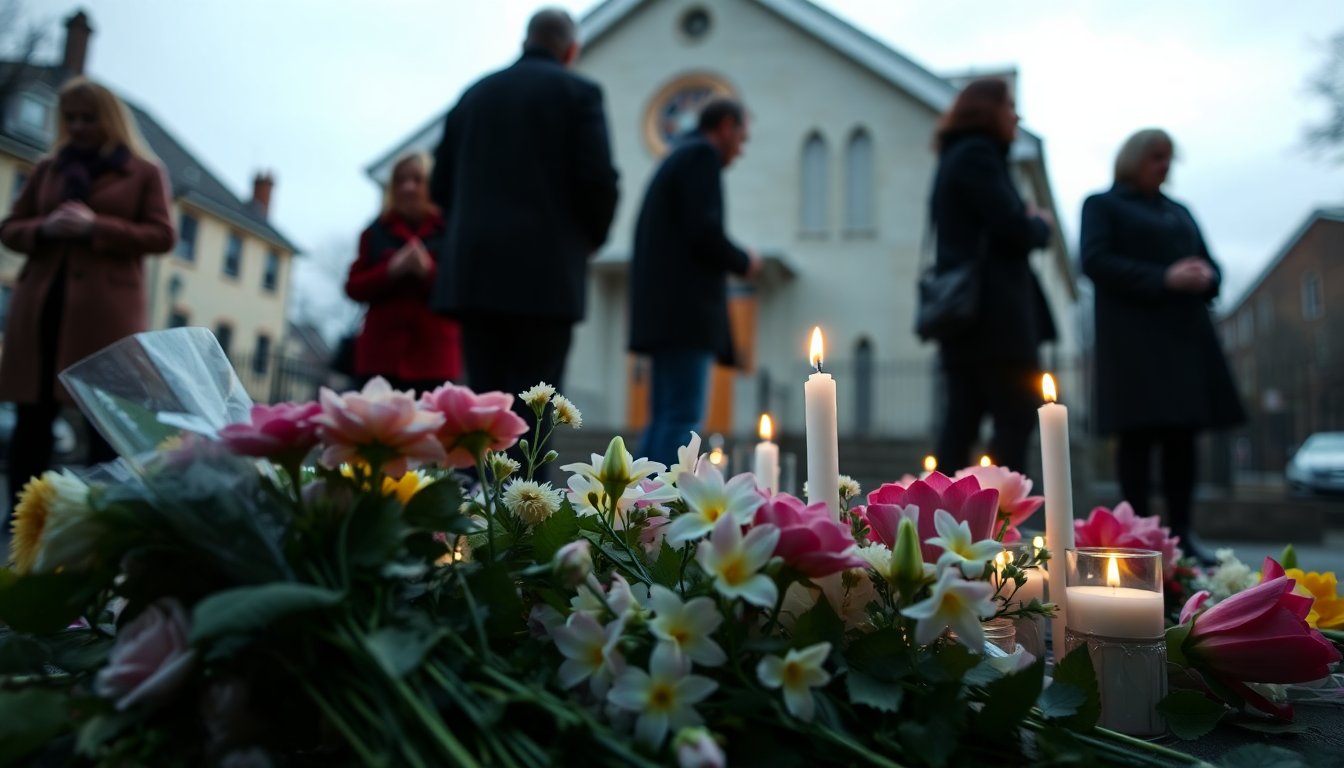Table of Contents
The attack on a synagogue in Manchester, England, has left the local community reeling. This tragic incident resulted in the deaths of two individuals, raising significant concerns about the assailant’s motives and the broader implications of such violence on a close-knit population. Both victims were familiar faces, deeply embedded in the community, leading to a profound sense of grief and loss.
Identifying the victims and their community ties
Reports indicate that the two individuals who died in the synagogue shooting were not only active members of the congregation but also key figures within Manchester’s dynamic community. Their contributions to local events and initiatives made them well-known and respected. The impact of their loss will be felt throughout the neighborhood, as residents reflect on their contributions and the joy they brought to many lives.
Community united in grief
Members of the community are coming together in a time of profound sorrow. They are sharing memories and stories of the victims, highlighting the importance of support during such tragedies. This incident has ignited discussions about unity and resilience in the face of adversity. Many individuals are reaching out to local leaders and organizations for guidance and healing.
Investigating the motives behind the attack
Authorities are prioritizing the investigation into the assailant’s motives. Preliminary reports indicate that the attacker had local connections, which raises further questions about the circumstances of the event. Understanding the motivations behind such violence is essential for both community healing and future prevention efforts.
The need for community dialogue
In response to this tragedy, community leaders are stressing the necessity of open discussions regarding safety, inclusivity, and respect among diverse groups. Establishing platforms for dialogue can enhance understanding and decrease the chances of future violence. Local forums and workshops may serve an essential function in assisting residents in processing their grief while fostering a culture of acceptance.
The broader implications of the attack
This synagogue attack not only impacts the immediate community but also reflects wider societal challenges. The incident has reignited discussions about hate crimes and the urgent need for improved security in places of worship. Moreover, it underscores the significance of community solidarity in combating extremism and divisive ideologies.
In the wake of the recent tragedy in Manchester, the resilience of the community is being tested. It is crucial for residents to unite, not only to honor the victims but also to ensure that such acts of violence do not shape their future. By fostering unity and understanding, Manchester has the opportunity to emerge as a stronger, more cohesive community in the face of adversity.


